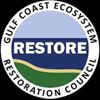
An official website of the United States government
Here’s how you know

The .gov means it’s official.
Federal government websites often end in .gov or .mil. Before sharing sensitive information, make sure
you’re on a federal government site.

The site is secure.
The https:// ensures that you are connecting to the official website and that any
information you provide is encrypted and transmitted securely.
